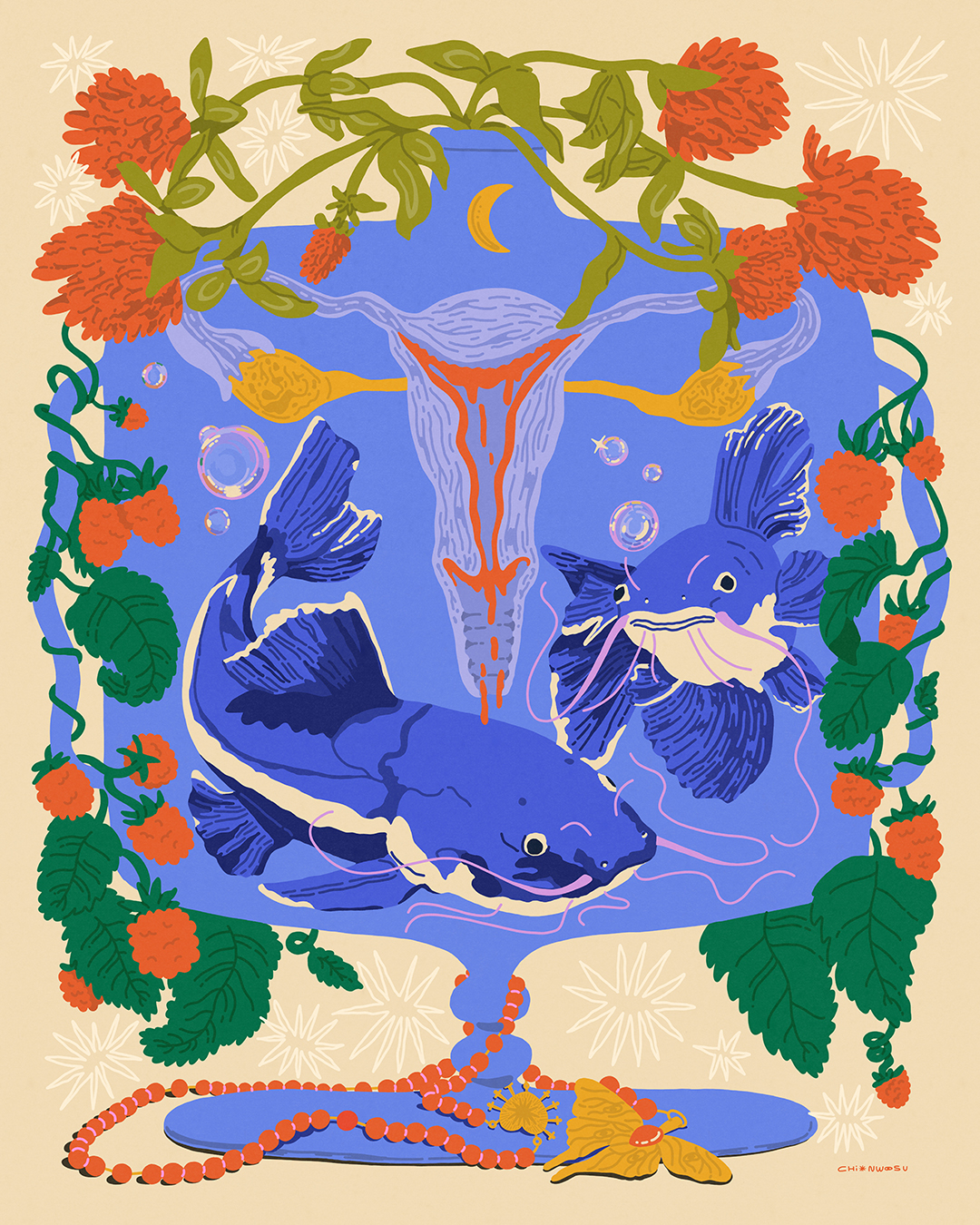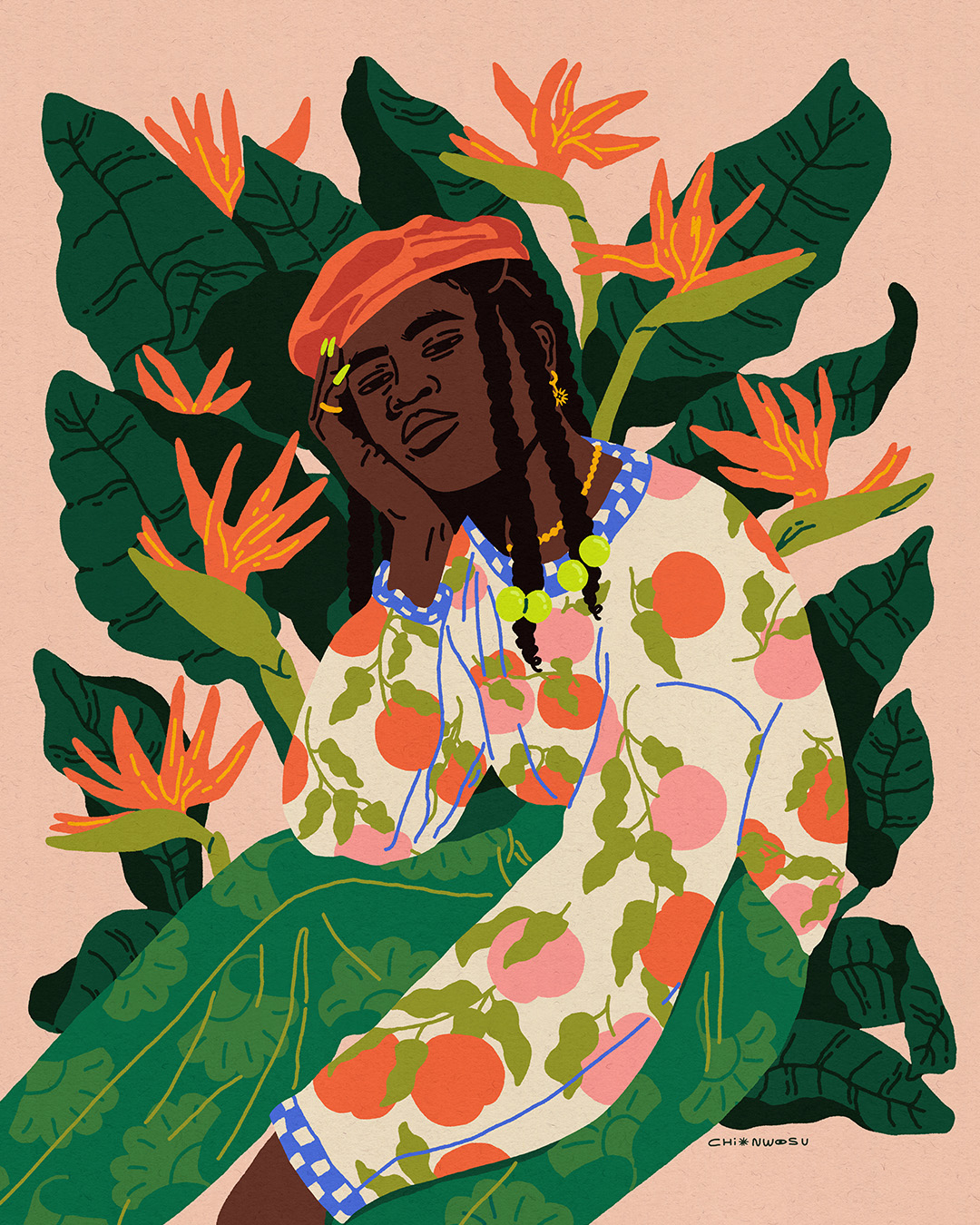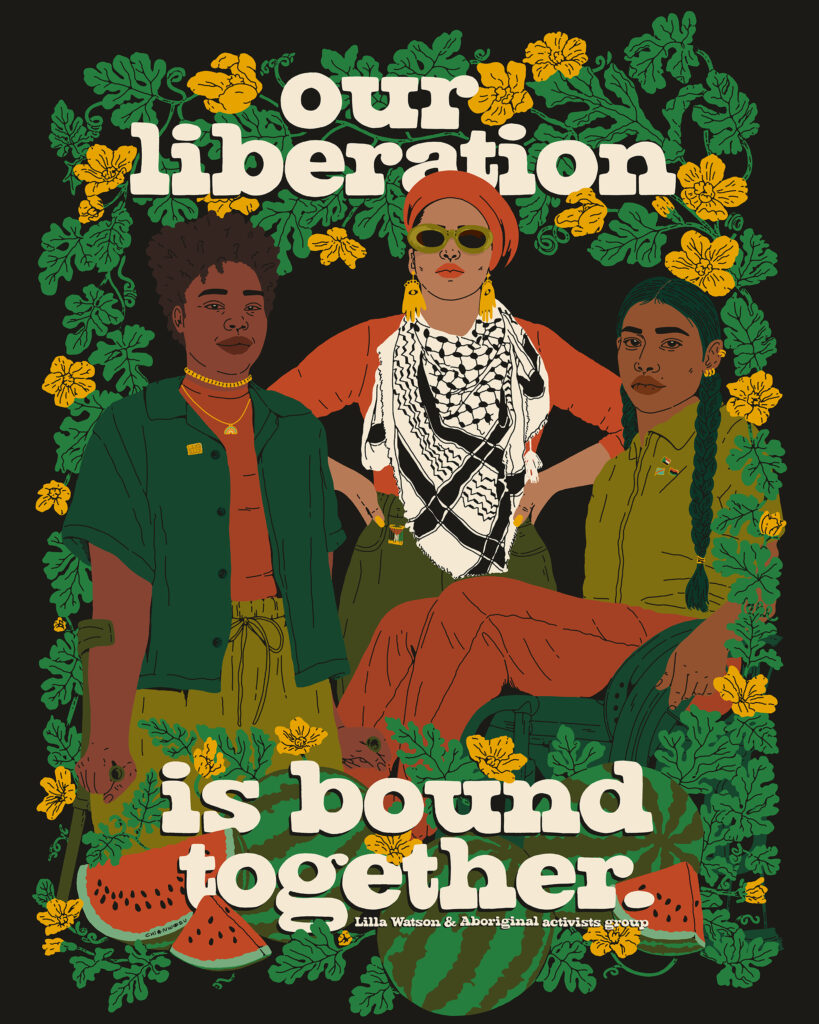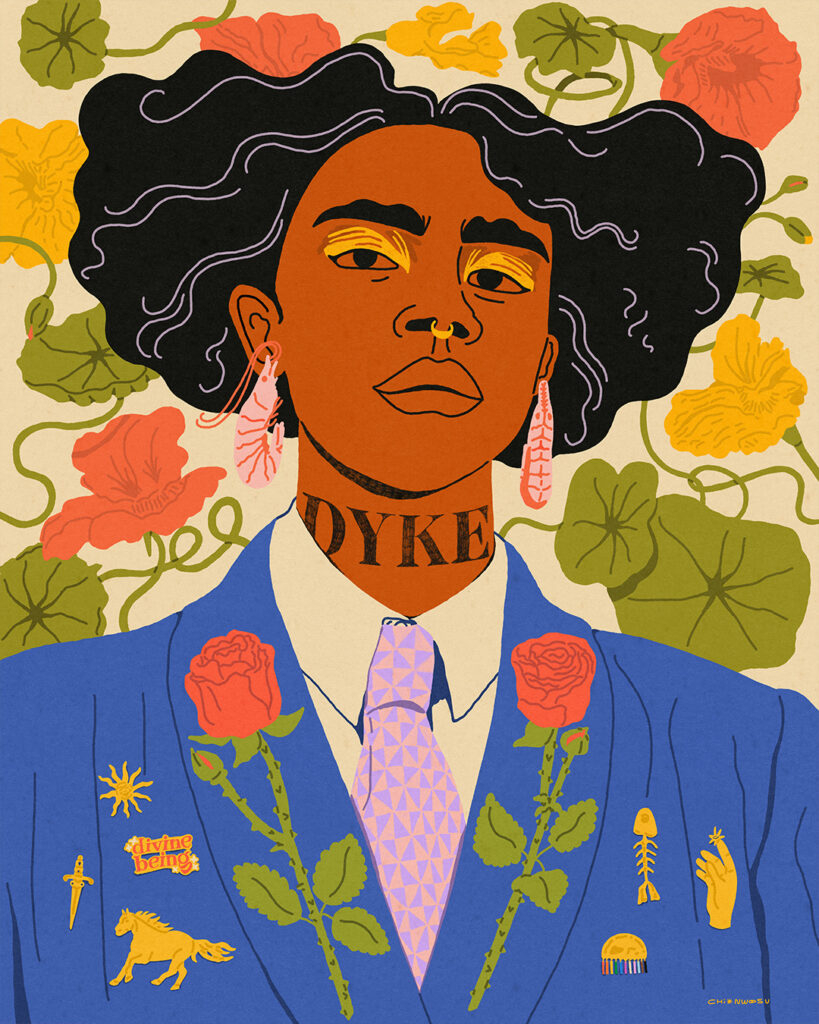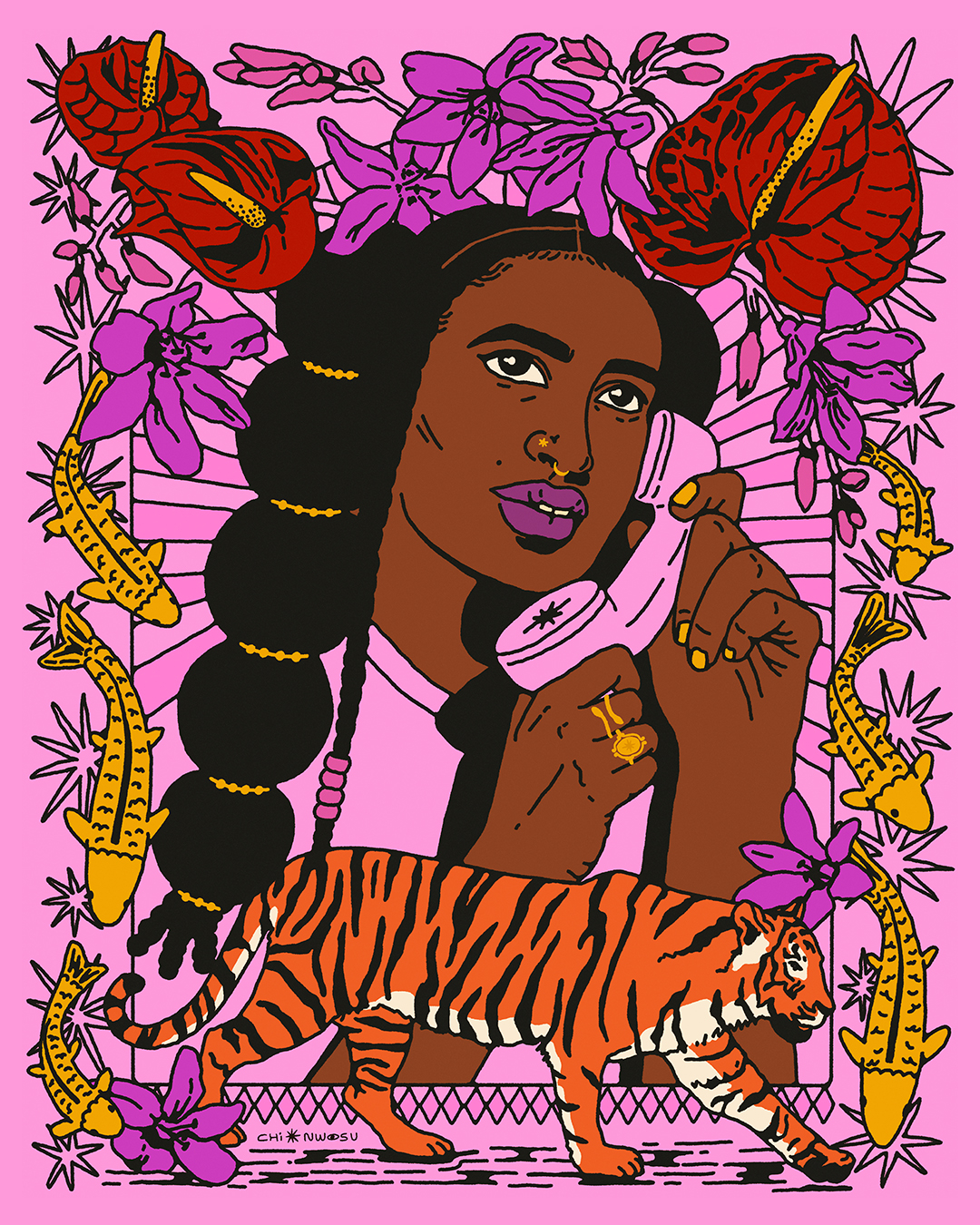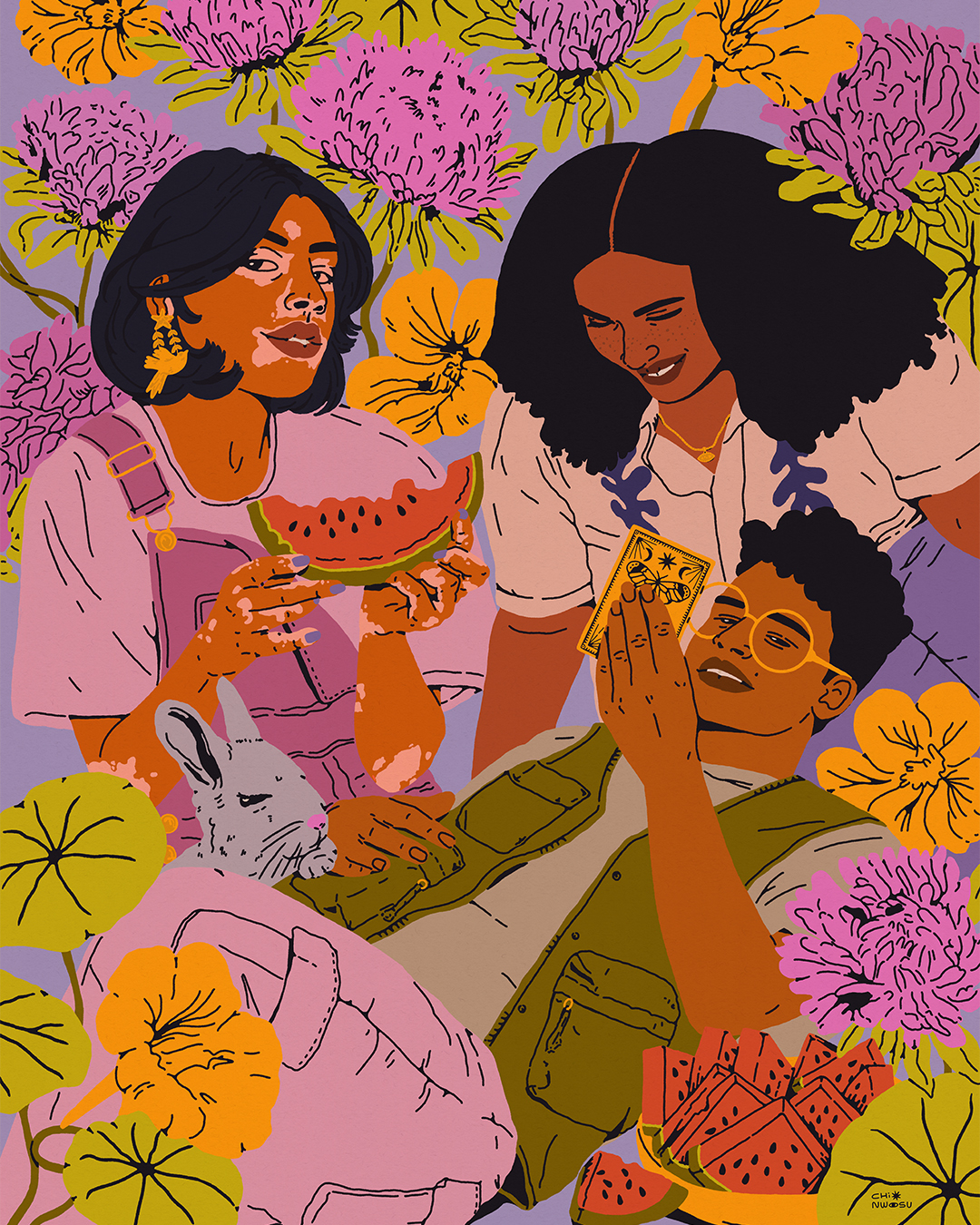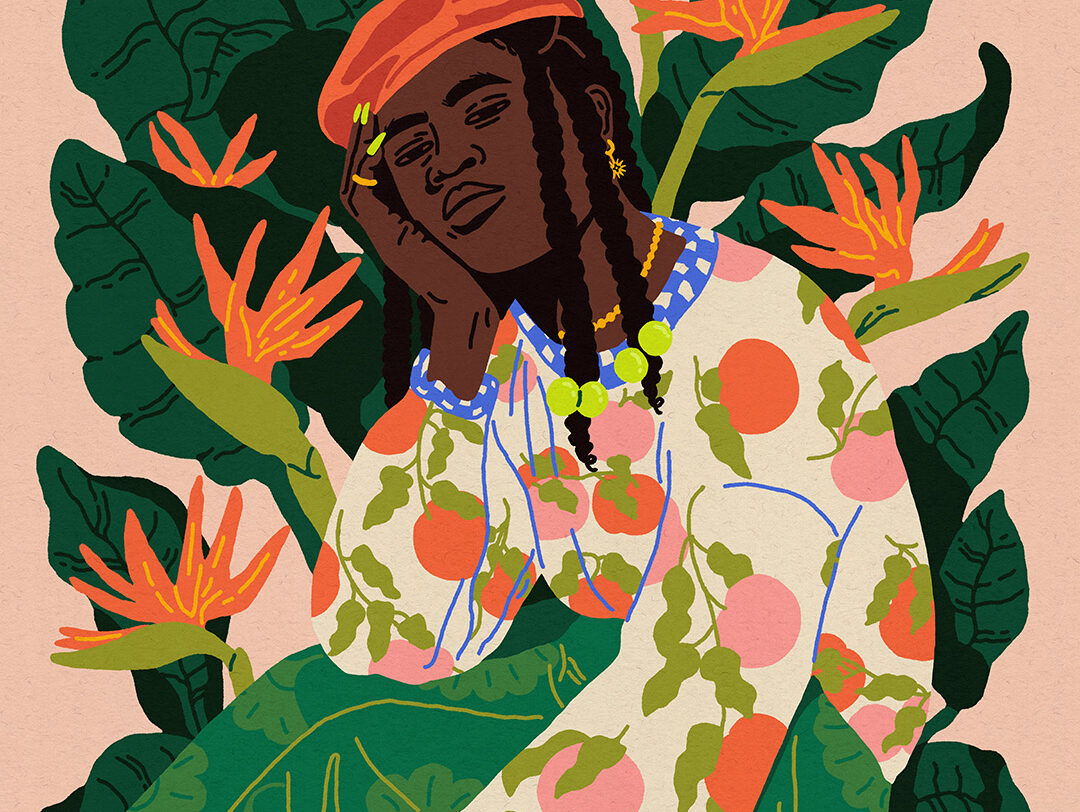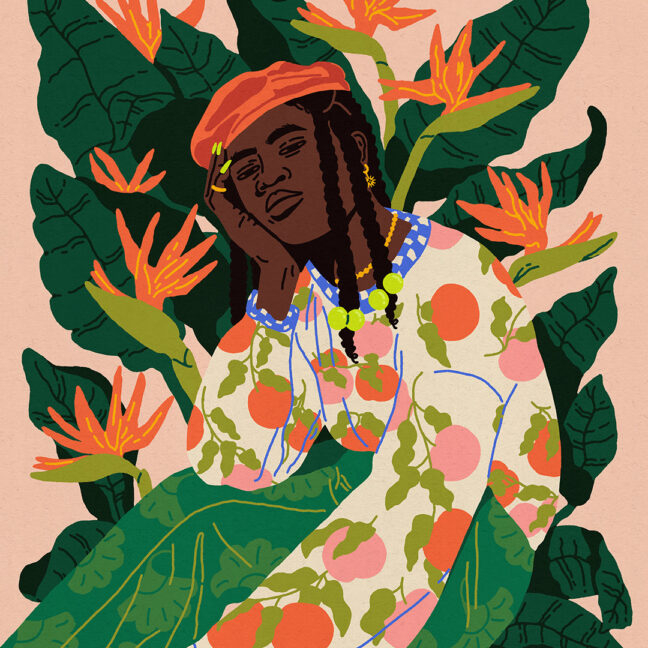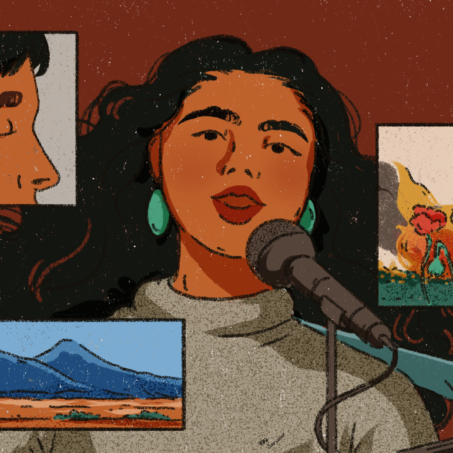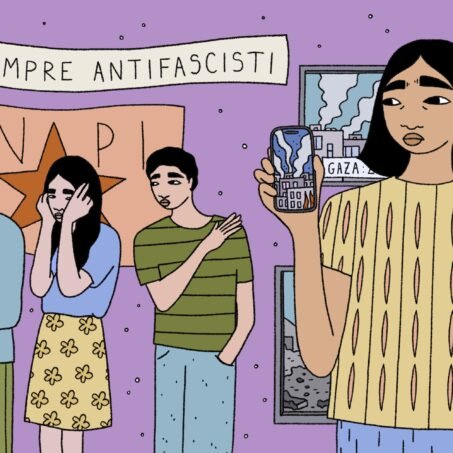Chi Nwosu is a Black, non-binary, queer, Nigerian artist based in Chicago. Their work is an alchemy of cultural narratives that centres marginalised experiences and utilises potent cultural, political, and spiritual symbols. Chi’s art invites viewers to imagine collective liberation, envisioning communities rooted in kindness, compassion, and care.
How has your lived experience shaped your practice?
My full name is Chinyere Nwosu. My name was a gift from my grandmother. It means “God’s gift”. I am the first-born of Igbo, Nigerian parents who struggled to have children. My parents uprooted their lives and moved us to the United States in 1993 when I was 5. Through decades of labor, they experienced upward mobility and provided as much stability as they knew for my siblings and me. They taught us that financial and career security is freedom. As Black people in a racist country, my father and mother intimately knew that the broader world aims to crush people like us: immigrants, indigenous, determined, unstoppable, and ineffable.
My assimilation into US culture was thorough. I wanted to conform —I didn’t know any other Way of Being. So I bent myself at all angles to fit this white supremacist mould: straight, cis, woman, career-obsessed, money-chasing, god-fearing, quiet, obedient daughter.
But my Spirit was broken, my mental health was in shambles, and I preferred to dull reality in any way possible. I let the Universe in for my survival and started a process of rebirth. Slowly, I came to see how much of this world exists in me and that I exist in everything. Over the last two decades, I came out as queer, I got sober, I am still unraveling my transness, and I have become less afraid to break silences. I allowed myself to hold multitudes of existence, and for the first time, I could genuinely breathe deeply.
I am a storyteller, a student, an artist, and a co-conspirator in imagining and learning to build a world where all of life is held with dignity, love, compassion, curiosity, and respect. My teachers are poets, healers, artists, fighters, queers, ancestors, Spirit, and the endless gifts of this existence.
What are some of your biggest influences and motivations in your work? What issues are you passionate about working on?
How I create work feels like a deeply spiritual practice. I draw my influences from all around me: the past, present, in-between, and future. I draw a lot of inspiration from uli painting motifs. Uli painting is traditionally practiced and passed down by Nigerian women. My process is ancestral, the ability to make markings that tell stories of the womyn who came before me. I love writing as part of my practice and call forth teachers like Audre Lorde, bell hooks, Kelly Hayes, Toni Morrison, Mariame Kaba, Robin Kimmerer, Angela Davis, and James Baldwin to stay rooted in liberatory imaginings for the present and future. I create as a remembering that our liberation struggles are interconnected. I listen to the call of liberation and transmute that energy into markings
Can you tell us a bit more about your focus on nature/scenes in nature?
I am still forming this idea as a philosophy, but nature is everything; nature is in everything. A somatic teacher recently shared the thought that “We are Earth.” I’ve been ruminating on that ever since. So much knowledge is embedded in how plants, animals, and our non-human kin survive and thrive together. They are deeply interdependent; we are deeply interdependent. Empire preys on our memory and conspires to keep us in a fog, but we are fighting. This Earth gives us so much; even when we are so violent towards it, she still gives. Nature is the embodiment of God, and we are part of that that Godself.
Where are you based, and what excites you about the creative community around you?
I’ve called Chicago, located on occupied Anishnaabe land, my home for nearly a decade. There are so many intersecting communities here. In the last decade, as I’ve deepened my queerness, I’ve also found a community of folks genuinely interested in queering our lives together. When you grow up on the outskirts of so many identities, you have to forge your version of beauty. I get to do that now with so many radical people I’m in community with! We are imagining what liberation looks like; we are organising and sharing ideas and having challenging conversations. I am so grateful to be in this iteration of my life.
See more of Chi’s work HERE
